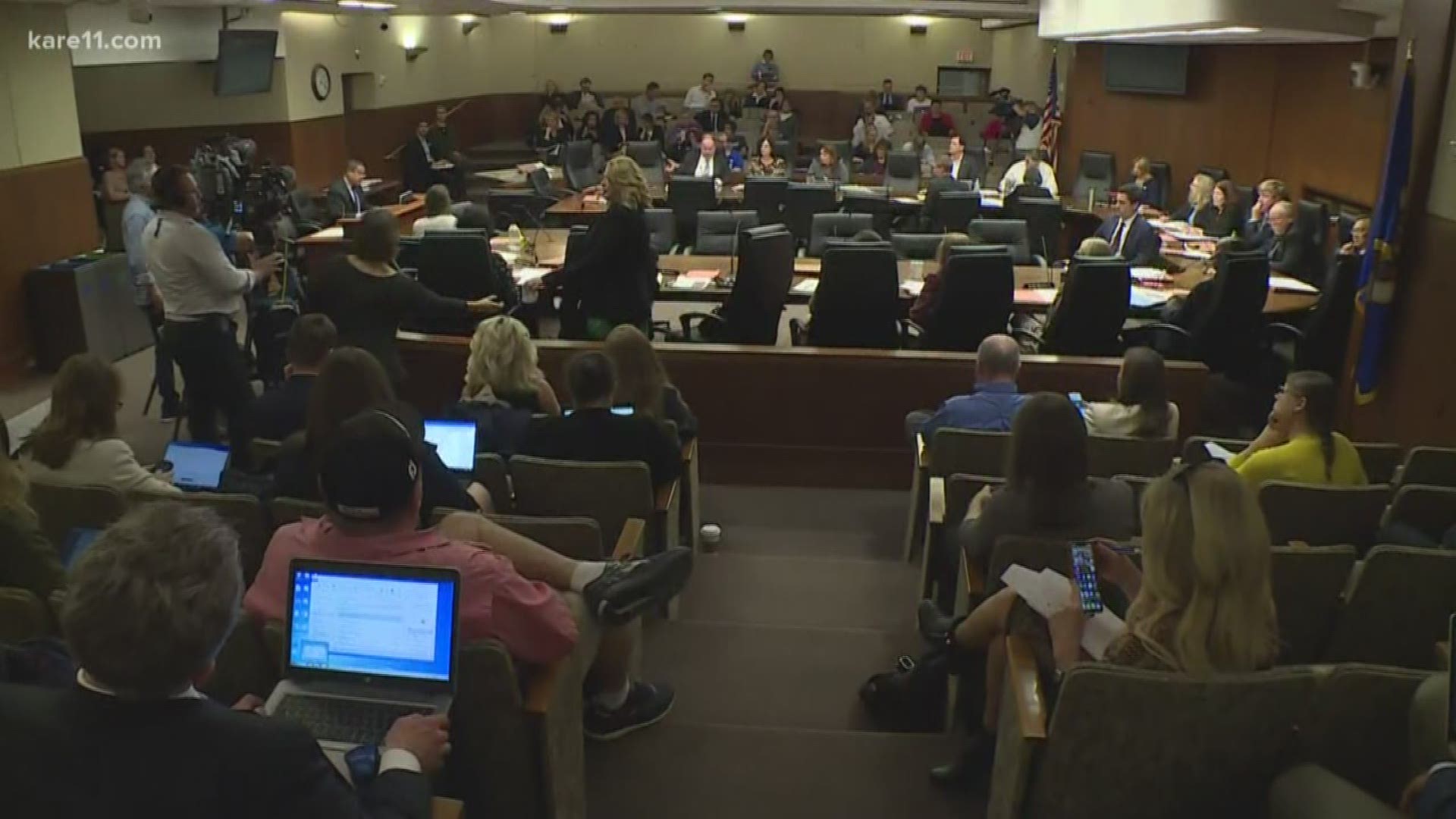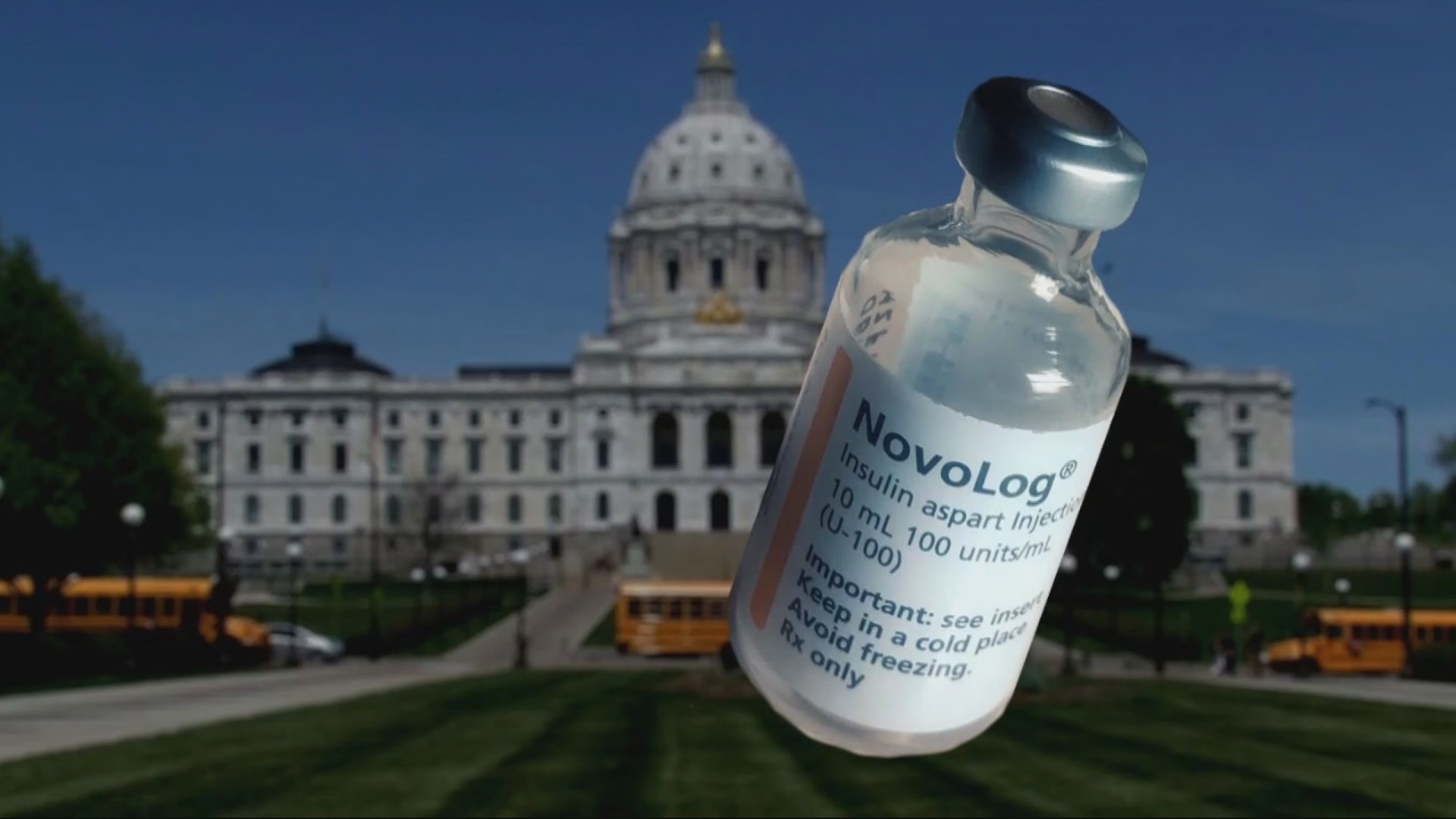ST PAUL, Minn. — Rep. Michael Howard asserts the clock is ticking on the insulin crisis, and lawmakers need to get over their partisan differences.
"This issue isn't about right or left, it's about life or death," Rep. Howard told reporters Thursday, before holding a hearing on the revised version of the Alec Smith Emergency Insulin Bill.
"Our job number one is to make sure we’re not having another Minnesotan lose their life because they can’t afford their insulin."
The DFL-controlled House last session passed the bill, but it faltered in the GOP-controlled Senate. The measure is named for a 26-year-old Twin Cities man who died in 2017 while rationing his insulin.
His mother, Nicole Smith-Holt, is part of the #Insulin4all coalition of volunteer activists who've led the charge on the bill that would provide a 30-day emergency supply to diabetics who've run out of their medication and can't afford more.
"We need to hold manufacturers accountable and we need save lives," Smith-Holt remarked during a hearing on Howard's bill Thursday in the House Health and Human Services Committee.
Smith was working at the time of his death but didn't earn enough to afford the out-of-pocket costs. He had aged out of his parents' health plan earlier that year.
"This bill would’ve saved Alec and it would’ve saved Jesy."
Jesy Scherer-Radcliffe died in July while rationing his insulin. His mother, Cindy Scherer Boyd, told legislators that he seemed fine just a couple of days before he suddenly became ill and died. She wasn't aware he had run low on his insulin.
"He was going to get paid the next day, and was waiting for that," Boyd said.
"Every day I deal with the pain of finding my son dead -- dead because he did not have the insulin he needed keep him alive."
Rep. Laurie Halverson, an Eagan Democrat who has Type 1 diabetes, told colleagues the soaring price of the drugs she depends upon have forced a crisis for those who can't make it work with their budgets.
"Can you name any other product in your lives that has gone up by 1,200 percent?" Rep. Halverson asked her colleagues on the committee.
"This is truly an emergency in Minnesota, anybody who is doubting it or questioning it is flat wrong."
Howard and other DFL lawmakers said they found things to like in the Senate Republican version of the insulin bill released earlier this month. They said the Senate's idea of getting people enrolled in health plans to avoid prescription emergencies may help address the longer-term issues, but it doesn't deal with situations of diabetics in immediate peril.
"The Senate bill is not an emergency insulin bill," Howard said.
The Senate's bill would require patients to apply through MNsure, and then seek insulin through a physician. The doctor would request the drug from the manufacturer, which would be required to donate a four-month supply. The drugs would be sent to the doctor's office for pick up by the patient.
In the House bill, patients would fill out a form at a pharmacy and be supplied immediately with a 30-day supply of insulin. Under an existing law the pharmacist could dispense the drug even if the diabetic's prescription has lapsed.
Pharmacists would be reimbursed by the state with money from new fees on insulin makers and wholesalers who sell insulin in Minnesota.
That 30-day supply could be renewed two more times, for a total of 90 days. The Senate bill enables patients to renew their supply two more times, for total of one-year.
The Senate author, Prior Lake Republican Eric Pratt, said the hope is that those diabetics who receive enough insulin to bridge them until their next opportunity to enroll in private insurance or a public health plan.
Both bills include a means-testing feature for eligibility.
The Senate bill would allow people who earn up to 400 percent of federal poverty level, while the House's version would be open to those who make up to 600 percent of the poverty line and aren't insured.
The House bill would also include people who are insured but have policies that carry annual deductibles of $5,000 or more.
The 2020 legislative session doesn't start until February, but Gov. Walz has said he would call lawmakers back for a special session on insulin if they can agree ahead of time on a bill that can get enough votes to pass both the House and Senate.


